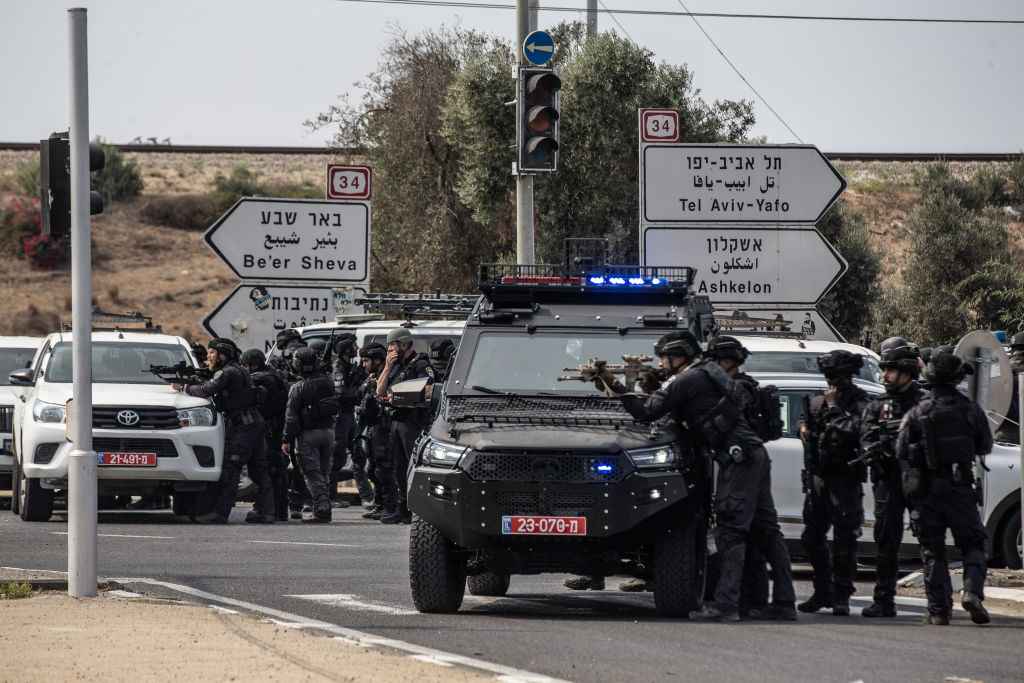On Oct. 7, 2023, Palestinian militants launched a surprise attack of unprecedented scale and scope on southern Israel from the Gaza Strip. The military incursion by land, sea, and air and associated barrage of missiles and rockets resulted in hundreds of deaths, prompting Israeli retaliatory airstrikes on Gaza that killed hundreds more and setting off a potential escalatory spiral.
How did Hamas and the Palestinian Islamic Jihad pull off this attack? What happened to Israeli defenses and response? Where does the war go from here?
To answer these questions and more broadly address the military dimension of this conflict, the Middle East Institute has assembled three highly-experienced defense experts.
Speakers
Mick Mulroy
Non-Resident Senior Fellow and Co-Director of the Yemen Steering Initiative, MEI
Kenneth M. Pollack
Senior Fellow, American Enterprise Institute
Bilal Y. Saab
Senior Fellow and Founding Director of the Defense and Security Program, MEI
Missy Ryan, Moderator
Reporter, The Washington Post
Key Takeaways
- With the surprise assault of Hamas on October 7, 2023, the longest conflict in the Middle East has entered a new phase. Kenneth Pollack stated that it is no coincidence that these attacks happened 50 years after the October War of 1973 and that there are striking similarities in their military form, even if their objectives differ.
- Saturday's attack was much more than a pure failure of intelligence. According to MEI’s Bilal Saab, Hamas took advantage of not only the lack of imagination and misinterpretation of information by the security apparatus but also the divided and distracted political establishment.
- Prospects for regional escalation are uncertain. While the conflict is moving toward regional escalation, Israel's next steps are likely to determine the prospects of the involvement of Hezbollah in Southern Lebanon and Syria.
- Until now there has not been proof of Iran's direct involvement in the attack. It is likely however that Hamas went to receive Tehran's approval prior to its offensive. Kenneth Pollack suspects that there won't be any major allegations towards Iran from the United States or Israel, until after the war, in order not to further provoke Iran or Hezbollah.
- The United States is moving the USS Gerald R. Ford Carrier Strike Group to the East Mediterranean to deter the Iranians and to provide symbolic reassurance to Israel. However, this move does not mean that American boots will be on the ground. More likely will be an exchange of intelligence officers, special forces operators and experts on hostage situations, to support the IDF in its operation to recover the hostages.
Biographies
Michael “Mick” Patrick Mulroy is the former Deputy Assistant Secretary of Defense (DASD) for the Middle East. As the DASD, he was responsible for defense policy for 15 countries and represented the Department of Defense of national policy in that area. He is also a retired CIA Paramilitary Operations Officer in the Special Activities Center and a United States Marine. He is a Senior Fellow for the Middle East Institute, an ABC News National Security Analyst, and a Co-founder of Lobo Institute.
Kenneth M. Pollack is a resident scholar at the American Enterprise Institute (AEI), where he works on Middle Eastern political-military affairs, focusing in particular on Iran, Iraq, and the Gulf countries. Before AEI, Pollack was affiliated with the Brookings Institution, where he was a senior fellow at the Saban Center for Middle East Policy. Before that, he was the center’s director and director of research. Pollack served twice at the National Security Council, first as director for Near East and South Asian affairs and then as director for Persian Gulf affairs. Pollock began as a Persian Gulf military analyst at the CIA. Among other recognitions, Pollack was awarded the CIA’s Exceptional Performance Award twice and the Certificate of Distinction for Outstanding Performance of Duty. Pollack has also worked on long-term issues related to Middle Eastern political and military affairs for the joint chiefs of staff when he was a senior research professor at the Institute for National Security Studies at National Defense University. Pollack is the author of Unthinkable: Iran, the Bomb, and American Strategy; A Path out of the Desert: A Grand Strategy for America in the Middle East; The Threatening Storm: The Case for Invading Iraq, and more.
Bilal Y. Saab is Senior Fellow and Director of the Defense and Security Program at the Middle East Institute (MEI) in Washington, D.C. In addition, he is an Associate Fellow with Chatham House in London and an Adjunct Professor with Georgetown University’s Security Studies Program in the School of Foreign Service, teaching graduate courses on U.S. defense policy in the Middle East and international security studies. Saab is the author of Rebuilding Arab Defense: US Security Cooperation in the Middle East (Boulder, CO: Lynne Rienner Publishers, May 2022).
Missy Ryan writes about diplomacy, national security and the State Department for The Washington Post. She joined The Post in 2014 to write about the Pentagon and military issues. She has reported from Iraq, Egypt, Libya, Lebanon, Yemen, Afghanistan, Pakistan, Mexico, Peru, Argentina and Chile.












